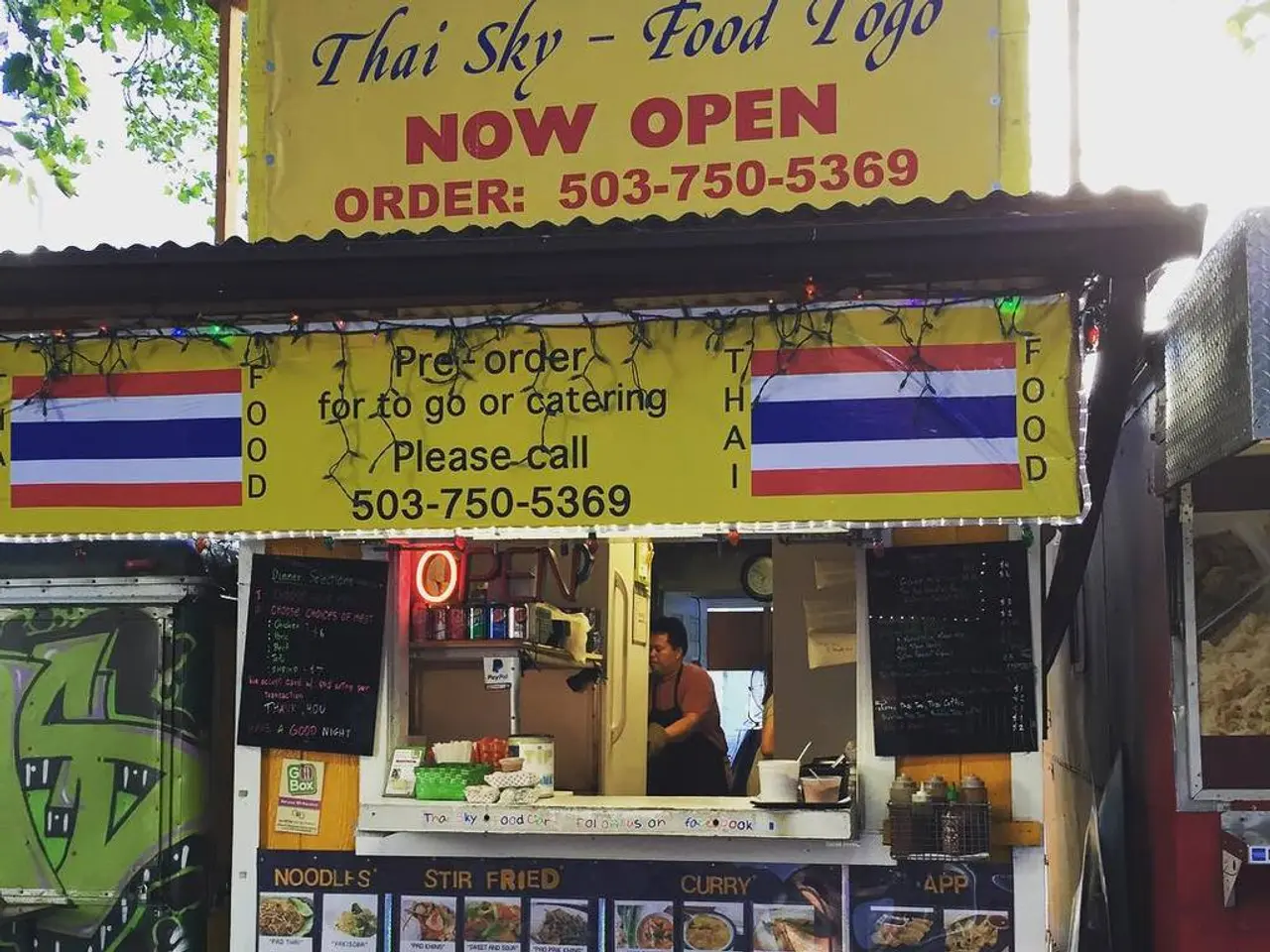Expanding Trademark Portfolio Aligned with Private Label Expansion at Target
In a strategic move to meet consumer needs, Target has been expanding its private label offerings, with notable additions such as the bettergoods brand from Walmart and various lines from its own stable, including Good & Gather and Favorite Day.
The growth of Target's private label products has been a significant boost for the company, which has struggled to keep pace with key competitors over the past couple of years. In fact, Target's sales from private brands amounted to $31 billion in the past year, and the growth of these products has been a shining star for the company.
The retail giant has filed 525 trademark applications with the USPTO in 2024, focusing primarily on private labels. This strategic move is a key factor in Target's success, as it allows the company to legally protect its unique product brands, secure competitive market positions, build consumer loyalty, and prevent unauthorized use by competitors.
One of the latest additions to Target's private label offerings is the Good Little Garden floral brand, which debuted in April and offers more than 60 options across seasonal and everyday assortments. Target has also expanded its Good & Gather Collabs assortment, which focuses on developing products with renowned chefs, with the addition of James Beard Award-winning Pitmaster Rodney Scott's Carolina-style appetizers, snacks, and sauces in June.
Target's executive vice president and chief commercial officer, Rick Gomez, stated that new brands and brand refreshes are a key tool for meeting consumer needs. The company currently has over 40 private brands, with more than 600 new items set to launch in 2025.
The motivations behind trademark applications by major retailers like Target, ALDI, Walmart, and Lidl for their private label products primarily involve protecting brand identity, differentiating their products, gaining competitive advantage, and ensuring legal control over their exclusive product lines. These trademarks help them secure exclusive rights to names and logos that build customer loyalty and prevent competitors from using similar marks.
Target has topped the list of companies filing trademark applications with the U.S. Patent and Trademark Office (USPTO) in 2024, with ALDI, Walmart, and Lidl following closely behind with 255, 211, and 177 applications, respectively.
In summary, Target's strategic expansion of its private label offerings, including the launch of new brands and collaborations with renowned chefs, is a key factor in its success. By protecting its unique product brands through trademarking, Target is able to secure competitive market positions, build consumer loyalty, and prevent unauthorized use by competitors.
The strategic growth of Target's private label products, as seen in its submission of 525 trademark applications in 2024, is a critical move in the retail industry's finance sector. This aggressive trademarking strategy is designed to protect its unique product brands, establish competitive market positions, and foster consumer loyalty, which has significantly contributed to the company's success in the market.
In light of Target's strategy, it appears that the growth of private label products in the retail industry is not just about meeting consumer needs, but also about shaping the industry finance landscape by ensuring legal control over exclusive product lines and differentiating products to gain a competitive advantage.




